Covid-19: Doctors outraged at Queensland Premier’s jab scare
Epidemiologists and doctors accuse the Queensland government of undermining the national Covid-19 immunisation program.
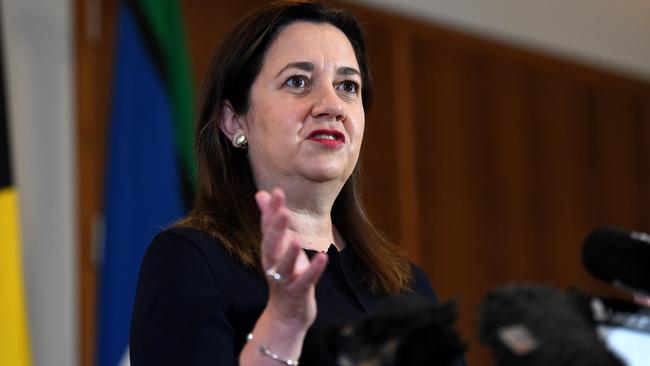
Epidemiologists and doctors have accused the Palaszczuk government of undermining the national Covid-19 immunisation program after Queensland officials warned against taking the AstraZeneca vaccine and accused Scott Morrison of putting lives in danger.
In the most significant rift within national cabinet, Queensland chief health officer Jeannette Young said she did “not want under-40s getting AstraZeneca”, after the Prime Minister said all adults could access the vaccine if they consulted their doctor on the small risk it could cause clotting.
“I don’t want an 18-year-old in Queensland dying from a clotting illness who, if they got Covid, probably wouldn’t die,” Dr Young said.
The country’s two largest organisations representing doctors contradicted Dr Young, with the Royal Australian College of General Practitioners accusing the Queensland government of “scaremongering”.
The college’s director Charlotte Hespe said she was “strongly of the belief that it is up to each individual to weigh up what their choices are”.
“She is definitely scaremongering because she is putting it out there and saying ‘they can’t have their own choice, I’m making a choice for them’,” Dr Hespe told 2GB radio in Sydney.
In a letter to members, Australian Medical Association president Omar Khorshid on Wednesday wrote: “The removal of the restriction on age is reasonable, is in line with the unchanged TGA approval, and will satisfy a desire in the community to be vaccinated as soon as possible.
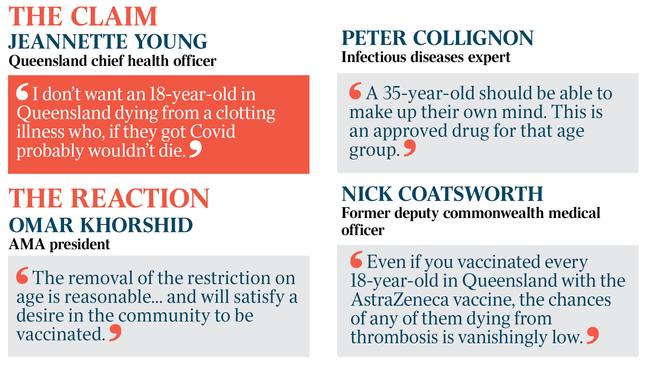
“The change merely removes the restriction and allows all adult Australians access to the approved vaccine. It gives GPs the opportunity to provide (AstraZeneca) vaccine if this is the patient preference, as long as the risks and benefits have been discussed and the patient has provided informed consent.”
Dr Khorshid, however, had publicly criticised the government for throwing “a hand grenade” into the vaccination program by not providing warning of the change that allowed those under 40 to access AstraZeneca.
“There’s a lot of confusion out there,” he told Sky News.
Dr Young and Queensland Premier Annastacia Palaszczuk were backed by West Australian Premier Mark McGowan, who said those under the age of 40 should not take the AstraZeneca vaccine, noting advice provided by the Australian Technical Advisory Group on Immunisation.
That group, last month, said the Pfizer vaccine was recommended for those aged under 60, citing the risk of blood clotting. But, it said, AstraZeneca could still be used by those under 60 when “the person has made an informed decision based on an understanding of the risks and benefits”.
Asked if she supported Dr Young’s views about the AstraZeneca vaccine, NSW chief health officer Kerry Chant noted ATAGI had said people could “make personal choices but they need to be informed”. “For younger people we really encourage you to go to your GP and just discuss your particular circumstances and have that discussion,” Dr Chant said.
The NSW government, however, will not make AstraZeneca available at the state’s mass vaccination clinics. Dr Chant said it was not an appropriate setting for “the detailed risk discussion” about the use of the vaccine to take place.
Dr Young, who said Queensland was facing a shortfall in Pfizer supplies, said Australians aged under 40 were at “increased risk of getting that rare clotting syndrome” as the Queensland government attacked Mr Morrison’s handling of the pandemic.
Ms Palaszczuk later said she had no problem with people speaking to their doctors about vaccines but told the ABC that the federal government was “looking at setting up mass-vaccination hubs to administer AstraZeneca to the under 40s”, describing the move as extraordinary.
A spokesman for the Morrison government denied that was the case. “That is absolutely incorrect and it is unclear what the Queensland Premier is basing that claim upon,” he said.
Dr Young said 49 people in Britain had died of the vaccine, which causes blood clots at a rate of three per 100,000 doses for people aged 50 and under.
However, more than 128,000 Britons have died of Covid-19.
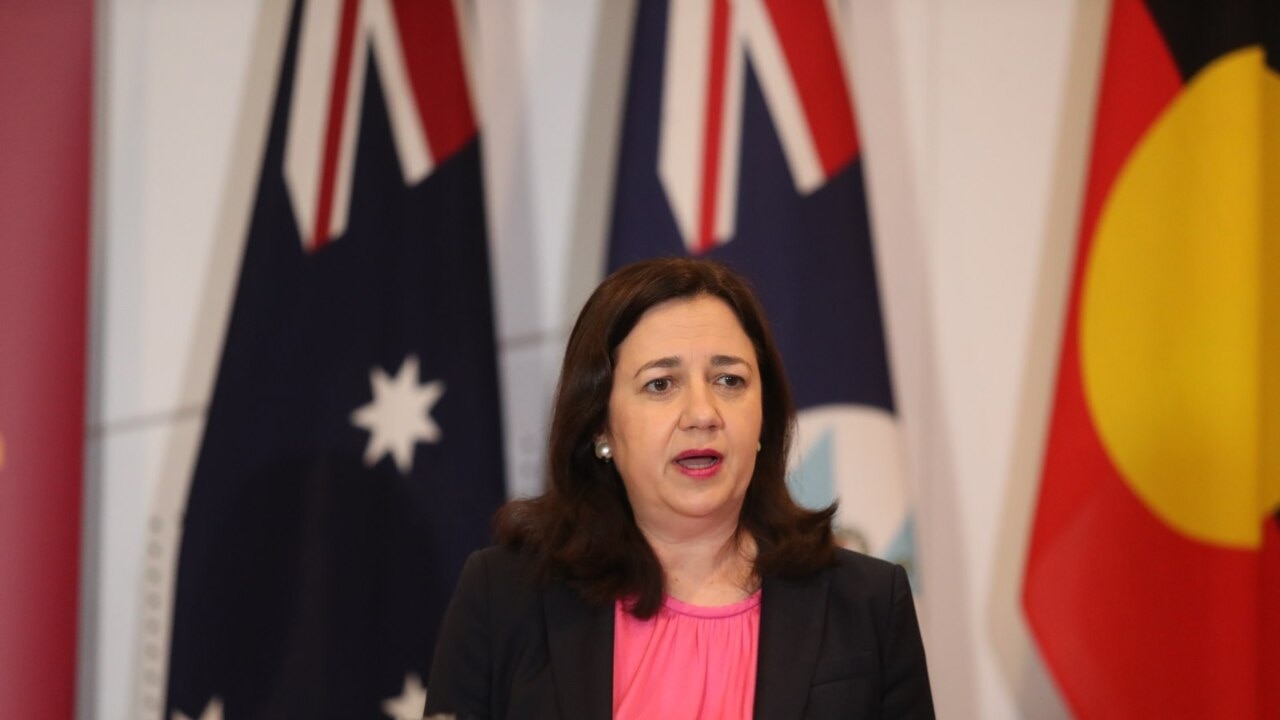
“We’ve had very few deaths due to Covid-19 in Australia in people under the age of 50,” Dr Young said. “And wouldn’t it be terrible that our first 18-year-old in Queensland who dies related to this pandemic, died because of the vaccine,” she said.
On Monday, Mr Morrison said national cabinet had agreed to indemnify doctors who provided advice to patients on vaccines. When asked if people under 40 could get the AstraZeneca vaccine, Mr Morrison said “if they wish to go and speak to their doctor and have access to the AstraZeneca vaccine, they can do so”.
In a statement to The Australian on Wednesday, AstraZeneca said it backed the federal government’s move to encourage people under 60 to consult a doctor about getting the company’s vaccine.
The company insisted its approval from the Therapeutic Goods Administration covered “all adults” over 18 but would not be drawn on Dr Young’s call for under-40s to use another vaccine.
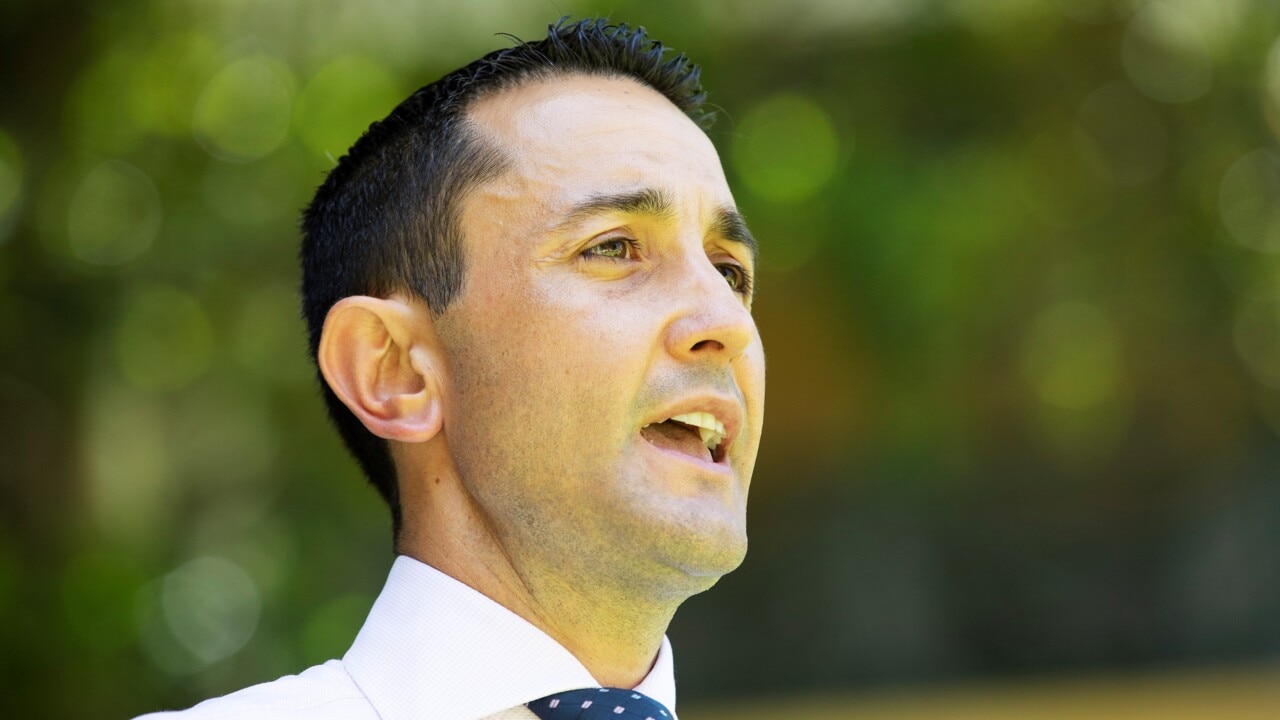
“AstraZeneca remains confident that our vaccine has an important role to play in protecting Australians from the virus,” the company said. “Globally our vaccine is helping to save tens of thousands of lives and significantly reduce hospitalisations.”
Moving to contain the controversy, Health Minister Greg Hunt said there had been no change to the advice from the ATAGI which recommended that AstraZeneca be taken by people over 60. “Our approach has always been to follow the medical advice and that ATAGI medical advice is clear, it’s set out, and as you know, we have made some difficult decisions to ensure that that medical advice has been followed,” Mr Hunt said.
He added that while he “would never step between a patient and a doctor”, the medical advice remained “very clear”.
With more than 11 million Australians in lockdown, Alice Springs was the latest city to be plunged into a shutdown – for 72 hours – after it emerged a mine worker had spent time in the town while infectious.
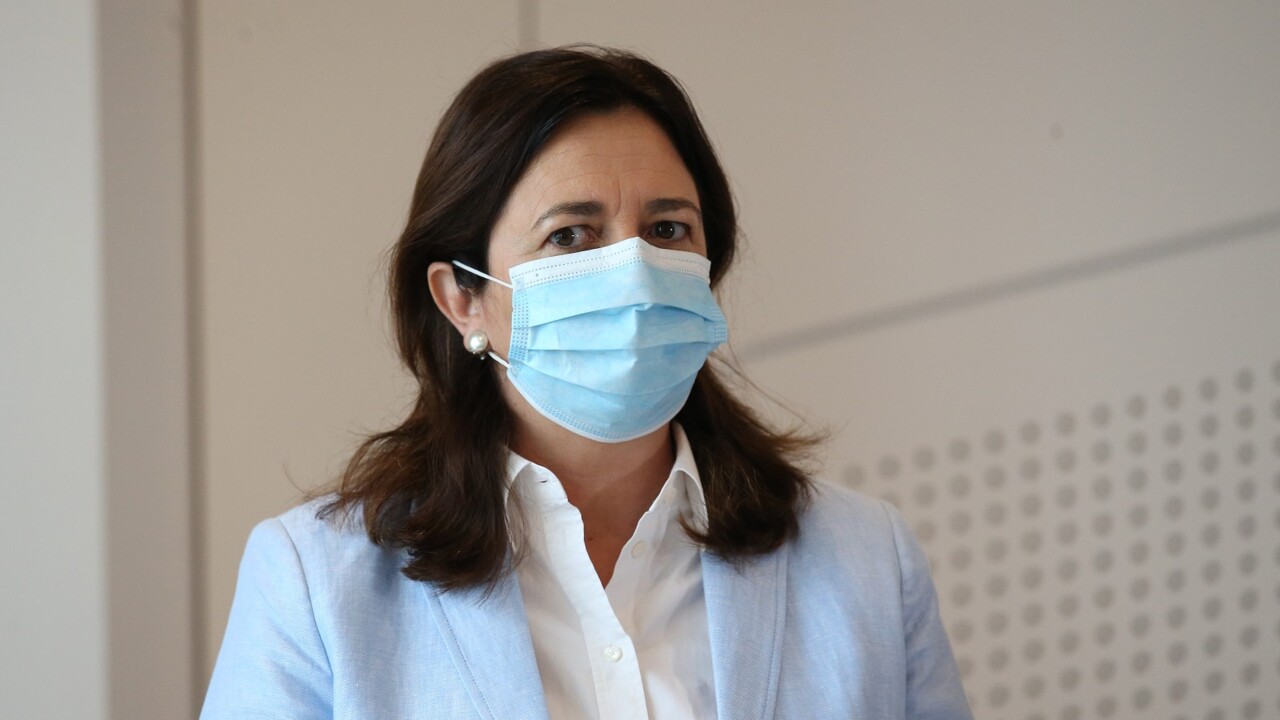
Restrictions also increased in South Australia, where there were five new cases, while NSW registered 22 new cases, and Queensland three new cases.
Dr Young’s comments also met with criticism from epidemiologists and public health experts, including former deputy chief medical officer Nick Coatsworth, who said he was “at odds” with the Queensland advice.
“Critical ethical principle of autonomy at stake here. Should not be paternalistic,” Dr Coatsworth wrote in a Twitter post.
“Adults should be allowed to consent to an intervention with a 3 in 100,000 risk of thrombosis with thrombocytopenia syndrome and less than 1 in 1,000,000 of death.”
University of Melbourne epidemiologist Tony Blakely said Dr Young was oversimplifying the issue. “There is benefit for society if more people are vaccinated,” Professor Blakely said.
“Higher vaccination coverage among young people sooner is important, because young people are more mobile, they are more likely to be the generators of transmission,” he said.



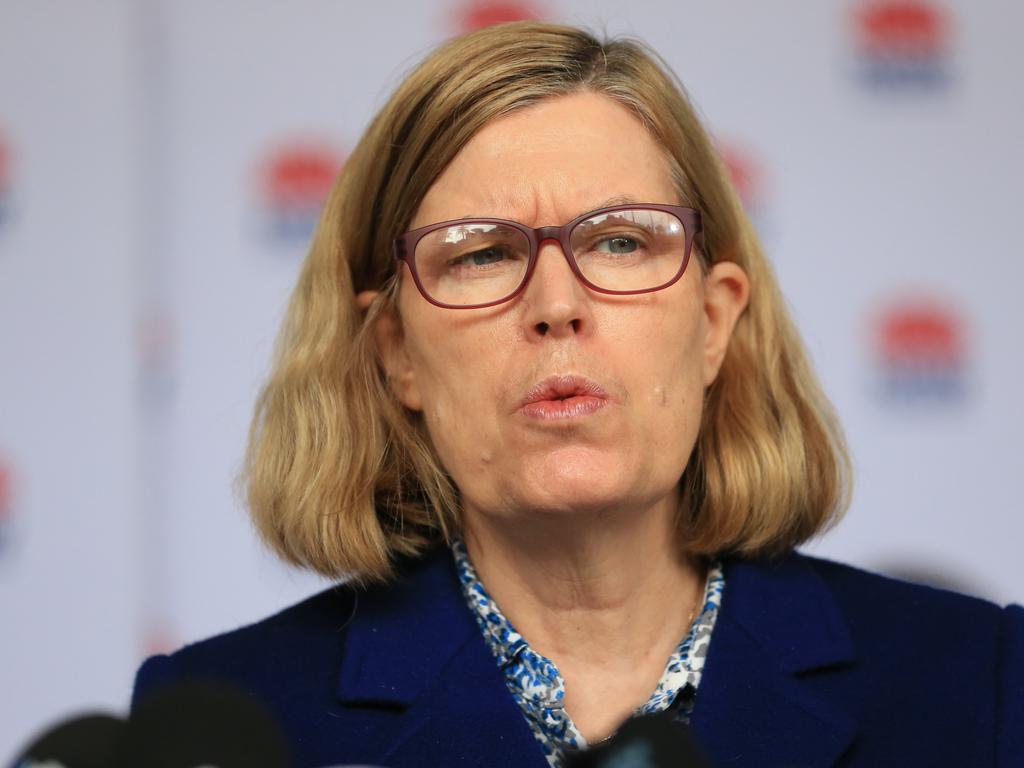

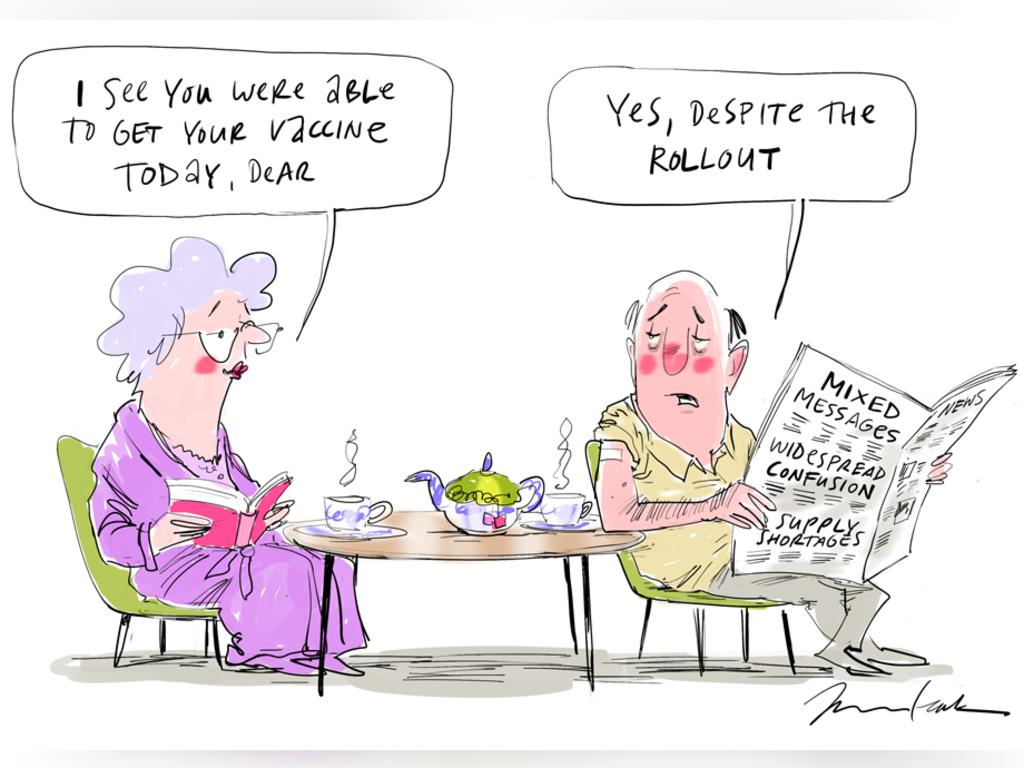
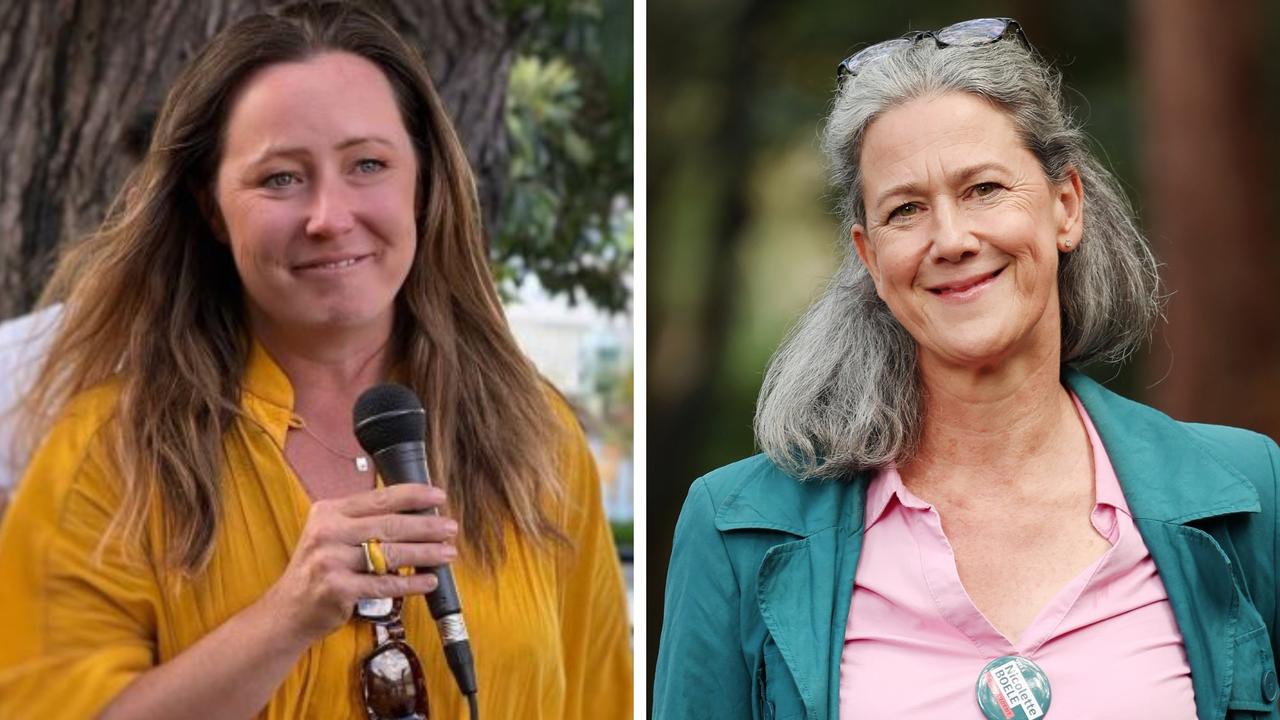
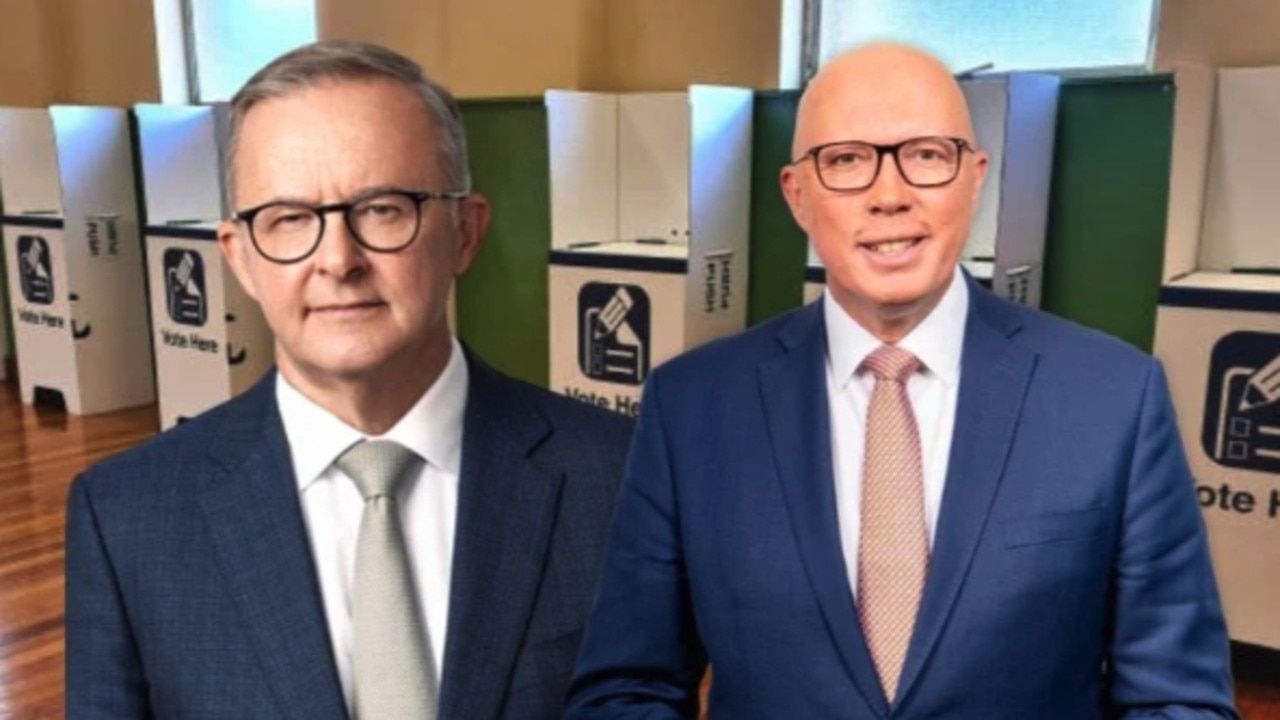
To join the conversation, please log in. Don't have an account? Register
Join the conversation, you are commenting as Logout